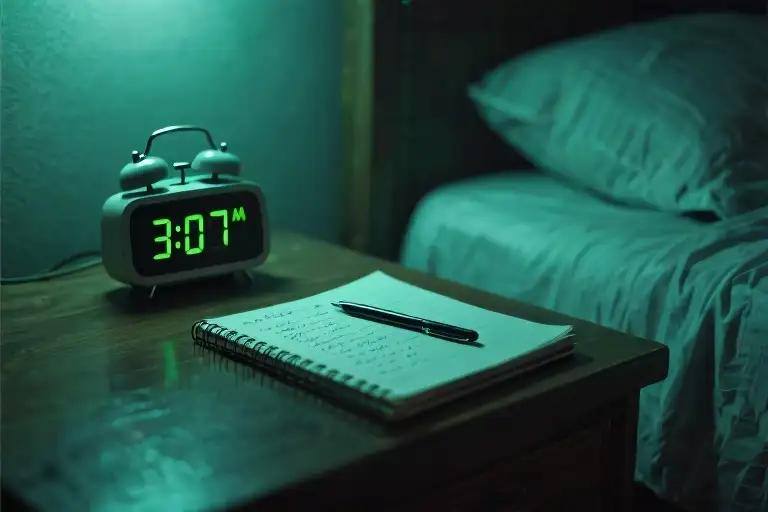When your laughter starts sounding like a recording of someone else’s joy, when your skin feels like borrowed clothing that never quite fits right, when the mirror reflects eyes that seem to belong to a stranger — these are the moments the world has taken too much. Not in grand thefts, but in tiny, daily withdrawals from your essence.
There’s a particular exhaustion that settles deeper than tired muscles. It’s the fatigue of performing a version of yourself that meets expectations but leaves you homesick for your own soul. The kind where you catch yourself mid-conversation realizing you’ve been reciting lines from a script you never agreed to memorize.
Modern life has rigged a cruel paradox: we’re drowning in connection yet starving for authenticity. The constant pings and notifications create an illusion of presence while eroding actual being. We’ve confused availability with value, mistaking response speed for personal worth.
But here’s the quiet rebellion no productivity guru will teach you: disappearance is an act of reclamation. Not the dramatic vanishing acts of mystery novels, but the conscious, temporary withdrawal that lets you hear your own thoughts again. It’s pressing mute on the world’s demands until you can distinguish your voice from the chorus of shoulds and musts.
This isn’t about running away — it’s the spiritual equivalent of stepping back from a painting to see the whole composition. The Japanese call it “ma,” the purposeful pause between notes that makes music meaningful. In a culture that worships nonstop production, choosing absence becomes radical self-care.
Your phone will keep its insistent vigil. Emails will pile up like uninvited guests. Colleagues may mistake your retreat for rejection. Let them. The most important relationship you’ll ever negotiate isn’t with your boss or followers, but with the person you greet in the mirror each morning.
True disappearance isn’t geographical. It’s the mental equivalent of drawing the curtains, turning down the volume, creating space for your psyche to unfold its crumpled edges. Sometimes healing looks like sleeping past dawn. Sometimes it’s walking without a destination. Often it’s simply existing without justifying your existence.
We’ve been conditioned to treat rest as earned reward rather than birthright. But consider: forests don’t apologize for winter dormancy. Bears don’t request permission to hibernate. Your humanity deserves at least the same respect we afford nature’s rhythms.
The magic happens in the between spaces — that breath between sentences, the silence after the alarm goes off but before you move. These are the moments you can steal back from the tyranny of productivity. Start small: five minutes staring out a window without reaching for your phone. A shower where you don’t mentally rehearse conversations. A meal eaten slowly enough to taste.
Disappearing isn’t failure. It’s the necessary evaporation that precedes rain.
The Body’s Distress Signals
Your body keeps score in ways your conscious mind often ignores. Before burnout becomes a medical diagnosis, it whispers through subtle physiological changes – those moments when you suddenly realize your own laughter sounds foreign, like a recording of someone else’s joy. This laughter alienation is more than fatigue; it’s your psyche’s early warning system indicating emotional displacement.
Skin, our largest sensory organ, becomes a startling barometer of distress. That fleeting moment when you touch your own arm and it feels like a stranger’s flesh isn’t mere imagination. Tactile dissociation occurs when chronic stress disrupts the somatosensory cortex, literally making you feel disconnected from your physical self. These phenomena aren’t character flaws – they’re neurological red flags waving vigorously for attention.
In workplace environments where constant availability is expected, the body develops specialized distress signals:
- Email Dread: That visceral lurch in your gut when the inbox notification chimes, a modern Pavlovian response where messages trigger physical nausea
- Meeting Aphasia: Sitting in conference rooms with words flowing around you like a foreign language, your tongue suddenly too heavy to contribute
- Screen Vertigo: The disorientation when monitors seem to warp and pulse after hours of video calls
- Calendar Paralysis: Frozen indecision when attempting to schedule basic self-care between back-to-back commitments
These symptoms don’t indicate weakness, but rather an intelligent organism recognizing unsustainable demands. Your nervous system isn’t malfunctioning – it’s performing exactly as evolution designed, alerting you to threats of depletion through somatic signals more honest than any productivity metric.
The corporate world often mislabels these physiological protests as ‘low resilience.’ In truth, they demonstrate your body’s remarkable resilience – its stubborn insistence on protecting your core humanity despite systems that reward self-neglect. Those odd moments when your hand hesitates before opening another work document? That’s not procrastination – it’s survival instinct manifesting as biological wisdom.
Before considering any digital detox or retreat strategy, cultivate this simple practice: Pause three times daily to check two biomarkers – the authenticity of your spontaneous smile (does it reach your eyes?) and the texture of your skin (does it feel like yours?). These instantaneous diagnostics require no apps or wearables, just momentary attention to what your flesh already knows.
The Invisible Chains of the Productivity Cult
We live in a world where urgency is manufactured like cheap perfume – overwhelming yet ultimately artificial. That vibrating phone in your pocket isn’t just a device; it’s a modern-day slave master, conditioning you to respond to every ping as if civilizations would collapse without your immediate input. This isn’t connectivity – it’s cognitive captivity.
The Global Siesta Experiment
In Madrid, the afternoon streets empty like schools of fish scattering at 2 PM sharp. Shutters roll down with ceremonial finality as Spaniards retreat into the sacred ritual of sobremesa – that languid space between lunch and life where conversations meander without agenda. Meanwhile in Tokyo, salarymen collapse at their desks in ‘inemuri’ (sleeping while present), wearing exhaustion like badges of honor. Two cultures, two approaches to rest: one structured into society’s fabric, the other stolen like contraband.
This cultural dichotomy reveals an uncomfortable truth: our relationship with productivity isn’t natural law but learned behavior. The 9-to-5 workday was literally invented by factory owners during the Industrial Revolution to synchronize human schedules with machinery. We didn’t evolve to function like cogs – we’ve been conditioned to.
Your Worth Beyond Output
Here’s the radical idea we’ve forgotten: You are not your deliverables. That inbox counter doesn’t measure your humanity. Those productivity metrics can’t quantify your capacity for wonder, for tenderness, for staring at clouds without needing to Instagram them.
Modern capitalism thrives on convincing you otherwise. It whispers (through ads, through corporate culture, through LinkedIn influencers) that your value compounds like interest – that you must always be leveling up, optimizing, grinding. But trees don’t apologize for winter dormancy. Bears don’t feel guilty for hibernation. Why should you?
The most subversive act may be reclaiming what anthropologists call “being time” – those unhurried moments when we exist without purpose. Not meditation with a Headspace timer. Not “self-care” that gets logged in wellness apps. Just… being. Like you did as a child before the world taught you that stillness needs justification.
The Slow Revolt
Resistance begins in small acts of temporal disobedience:
- Let a call go to voicemail without the reflexive “Sorry I missed you!” lie
- Decline meeting invites with no explanation beyond “Not available”
- Create email templates that auto-reply “Messages are reviewed weekly” without apology
These aren’t just productivity hacks – they’re quiet revolutions against the cult of urgency. Each is a stitch repairing the tear between who you are and who the world demands you pretend to be.
Remember: Every “emergency” that isn’t bleeding or burning is likely fiction. That deadline? Manufactured. That crisis? Probably someone else’s poor planning. The world will take everything you give it and still demand more. The only sustainable solution is to decide – consciously, deliberately – where your boundaries live.
Your existence doesn’t require justification. Not through hustle. Not through availability. Not through any metric more profound than the simple, unproductive miracle of being alive.
The Gradual Disappearance Playbook
Disappearing isn’t an all-or-nothing proposition. Like adjusting a dimmer switch rather than flipping a circuit breaker, we can learn to modulate our presence in ways that honor our needs without abandoning responsibilities. This tiered approach prevents the whiplash of sudden withdrawal while still creating sacred space for recovery.
Workplace Vanishing Acts
Start with the smallest possible intervention – a delayed email response. Most email platforms allow you to schedule replies. Try setting a 4-hour buffer on non-urgent communications with a simple note: “Appreciate your message. I’m working through priorities and will respond fully by [date].” This creates breathing room without triggering workplace alarms.
For meetings, implement the “20% absence rule.” If you normally attend five weekly check-ins, designate one as optional viewing. Use the reclaimed hour for a walking meeting with yourself – no agenda beyond noticing how your body feels when not performing professional composure.
When deeper retreat becomes necessary, adapt this vacation template:
“I’ll be focusing on a personal project from [date] to [date] with limited connectivity. For urgent matters, contact [colleague]. All other messages will be addressed upon my return.” No apologies, no details – just clean boundaries wrapped in professional courtesy.
Social Fade Techniques
Social platforms condition us to mistake visibility for value. Break this connection with a three-layer filtration system:
- The Mute Sanctuary: Curate feeds to silence triggering accounts (not unfollowing, just muting). Notice which muted relationships you genuinely miss after two weeks.
- Response Tiers:
- Immediate replies only for messages containing specific emojis (you define which)
- 24-hour response window for close connections
- 72-hour minimum for casual acquaintances
- Presence Windows: Designate two 15-minute slots daily for social engagement. Outside these, the apps don’t exist. Watch how quickly the imagined urgency dissipates.
Digital Detox Pathways
Our devices have turned into anxiety IV drips. Try these gradual withdrawal methods:
For the first week, simply observe your app openings without judgment. Keep a tally sheet noting:
- Physical sensations before tapping an icon
- The actual value derived from each session
- How long it takes to feel “done” (if ever)
Next, implement the “Three-Tap Rule.” Before opening any app, you must:
- Tap your wrist (check pulse)
- Tap your sternum (check breathing)
- Tap your temple (state your intention)
This somatic interlude often reveals automatic reaching for distraction versus true need.
Finally, experiment with app geography. Move all non-essential icons to a folder titled “Later” placed on your phone’s last screen. Notice how friction changes your engagement patterns. The spaces between our impulses and actions hold surprising wisdom.
These strategies work because they’re boringly practical. Real disappearance magic happens in the mundane – the extra breath before replying, the conscious choice to leave a notification unopened, the willingness to let some threads dangle. Start small, but start. Your future self will recognize these as the first steps home.
When They Say You’re Being Selfish
The oxygen mask principle isn’t just for airplanes. When someone accuses you of disappearing for mental health as selfishness, remember: securing your own wellbeing isn’t neglect—it’s the prerequisite for showing up meaningfully in any relationship or project. That colleague who claims you’re abandoning the team? Their panic speaks more about organizational fragility than your responsibility.
Try this reframe: “I’m being responsible to my commitments by ensuring I can fulfill them sustainably.” Most workplace emergencies are manufactured crises anyway—the average “ASAP” request could wait 48 hours without catastrophe. If you disappeared for a month and everything collapsed, that reveals systemic issues no amount of your overwork should be patching.
The Myth of Indispensability
That voice whispering “the project will fail without you”? It’s lying. The substitute test never fails: ask yourself “If I got hit by a bus tomorrow, how would they cope?” Harsh imagery, but effective—institutions have contingency plans for literal tragedies; your two-week retreat won’t break systems worth preserving.
Document your processes before disappearing. Not to enable their dependency, but to prove how replaceable you actually are. When I coached a startup CTO through her first digital detox, we created a “break glass” document with just enough instructions for emergencies. Upon returning, she found the team had solved three “critical” issues without ever opening it.
Opportunity Cost Reassessment
Fear of missing out preys on our scarcity mindset. But what about the cost of not disappearing? Calculate the compounding interest of burnout—the creativity lost, the relationships strained, the health bills accrued. That networking event you’ll skip might mean one less coffee meeting, but staying might mean six months of creative block.
During my 2022 sabbatical, I missed a coveted speaking opportunity. The old me would’ve seen catastrophe. Instead, that slot went to someone for whom it was a career-making break, while I returned with the energy to write a book that reached ten times that audience. The universe redistributes opportunities when we trust its flow.
Three Scripts for Boundary Defense
- For the guilt-tripper: “I understand this feels sudden to you. My current capacity requires this, and I’ll be able to contribute better afterward.”
- For the work martyr: “I admire your dedication. For sustainability, I’m choosing a different rhythm that works for me.”
- For the skeptic: “Research shows strategic disengagement increases long-term productivity. I’m testing that hypothesis.”
Notice these aren’t apologies or justifications—they’re neutral statements of fact. You’re not negotiating your humanity. The right people will surprise you; when I finally told my clients I was taking Wednesdays offline, three confessed they’d been wanting to do the same and asked for my template.
The Contingency Paradox
Here’s the secret no productivity guru will admit: preparation for disappearance makes you more present when you are available. Knowing you have systems to step away paradoxically reduces the urge to escape. It’s like financial security—you don’t actually want to spend the emergency fund, but its existence changes how you engage with daily stresses.
Start small. Next time someone demands immediate attention, wait 90 minutes before responding. Notice how few follow-ups you receive. That gap between stimulus and response? That’s where your freedom lives.
The Five Signposts of Real Recovery
True healing doesn’t announce itself with fireworks. It creeps in through the backdoor of your awareness, leaving subtle clues that you’re finally coming home to yourself. These five signposts will help you distinguish between temporary relief and genuine restoration.
1. Spontaneous Smiles That Feel Like Yours Again
You’ll notice it first in unguarded moments – when your coffee tastes particularly good, or when you catch sunlight dancing through leaves. That flicker of warmth spreading across your face isn’t performative or polite. It’s the kind of smile that starts in your toes and works its way up, the kind you don’t think about until it’s already there. Your facial muscles remember joy before your mind does. When strangers begin asking why you’re smiling at nothing, you’ll know part of you has returned.
2. Time Regains Its Natural Rhythm
During burnout, hours either drag like centuries or vanish without memory. True recovery restores your internal chronometer. You’ll catch yourself losing track of time during enjoyable activities again, yet never feeling “behind.” Mornings no longer fill with dread about how to survive until nightfall. You might even experience that rare childhood sensation of a perfectly paced day – not too fast, not too slow, just flowing. This temporal equilibrium proves your nervous system has downshifted from survival mode.
3. Your Body’s Three Silent Benchmarks
a) The Shoulder Test
Notice when you unconsciously lower your shoulders from their usual defensive hunch. That half-inch descent marks your body’s first concession that constant vigilance isn’t required. The muscles along your neck will soften like thawing ice, allowing your head to balance naturally rather than jutting forward against imaginary threats.
b) The Breath Count
Recovery breathes itself into existence. Start counting when you wake: if your first three breaths descend past your collarbones into your diaphragm, your autonomic nervous system has begun its reset. Shallow chest breathing belongs to your disappearing act; belly breaths signal your return.
c) The Blink Rate
Screen-glazed eyes blink about 5 times per minute instead of the healthy 15-20. When you catch yourself blinking normally during work – moistening your eyes without conscious effort – your body has reclaimed its self-regulation. This tiny biological rebellion against digital overload might be the most revolutionary act of all.
4. Small Irritations Stay Small
That misplaced keys or delayed train no longer sends you spiraling. Minor frustrations remain exactly that – minor. You’ll recognize this stability when inconveniences trigger proportionate responses rather than existential crises. The emotional buffer zone between “annoyance” and “overwhelm” has been rebuilt, brick by brick, during your absence.
5. Curiosity Outweighs Obligation
Genuine recovery reignites questions unrelated to productivity: “What does that cloud resemble?” “How do birds decide where to perch?” When intellectual hunger returns for its own sake – not to check some self-improvement box – your mind has cleared enough space for wonder. This mental spaciousness often manifests physically too; you’ll find yourself pausing mid-step to observe details that previously escaped notice.
These signposts never arrive on schedule or in predictable order. Some days you’ll recognize three, others none. That’s the paradox of disappearance – the less you chase recovery, the more authentically it finds you. When enough of these moments accumulate, you’ll realize your most important reunion wasn’t with the world, but with the person navigating it.
The city hums around you like white noise now—not an assault, but a distant murmur that no longer demands your immediate attention. The reflection in the mirror meets your gaze without flinching, pupils steady as morning lakes. Somewhere along the way, without fanfare or dramatic revelation, your heartbeat resumed its familiar rhythm.
This is how you’ll know you’ve returned: not because your calendar insists it’s time, not because others grew tired of waiting, but because your body speaks in syllables you recognize again. That spontaneous laugh bubbling up during a mundane moment. The way your shoulders drop when breathing comes without conscious effort. The forgotten pleasure of touching your own cheek without recoiling from foreign skin.
Five tangible signposts will light your way home:
- Laughter reclaims its fingerprint
The sound no longer echoes hollow in your chest. It surprises you at odd moments—a misheard lyric, a dog’s determined scratching behind its ear—and you don’t stop to analyze whether the reaction is “appropriate.” - Time regains its texture
Minutes no longer stretch like overworked taffy nor vanish like smoke. You notice golden hour light pooling on the floorboards. You taste your coffee instead of gulping it as fuel. - Touch becomes neutral territory again
Your own hands feel like allies when washing dishes. A friend’s accidental brush against your arm doesn’t send electrical warnings up your spine. - Decisions emerge unforced
Choosing between tea varieties or evening activities occurs without paralysis. The mental math of “what will people think” fades to background static. - Silence turns spacious
Those empty moments between tasks no longer itch with unnamed urgency. You catch yourself staring out windows without reaching for your phone like a lifeline.
These markers won’t arrive with marching bands or neon signs. They’ll slip in quietly, like a cat reclaiming its favorite napping spot after a long absence. You might only recognize them in hindsight—”Oh. I didn’t tense up when the phone rang this morning”—which is precisely why we name them here.
Guard against false finishes: that performative burst of energy after three days offline, the manic productivity that masks lingering fragility. True recovery isn’t linear. Some mornings you’ll wake with old shadows clinging to your ribs, and that doesn’t erase your progress. The difference now? You’ll pause instead of plowing through. You’ll recognize the dip as temporary terrain rather than proof of failure.
When the world inevitably comes knocking again—as it will—you get to set the terms this time. Not with grand declarations, but through micro-choices: leaving parties early without apology, scheduling blank spaces in your calendar like VIP appointments, letting some emails live forever in the “read” category. These become your new border markers, the invisible fences that keep your hard-won peace from bleeding out.
Until streetlights blur into constellations through your rain-streaked window. Until your reflection winks back at you with conspiratorial recognition. Until your pulse becomes that steady drumbeat you’d know anywhere in the dark—the most familiar rhythm you’ll ever need.





